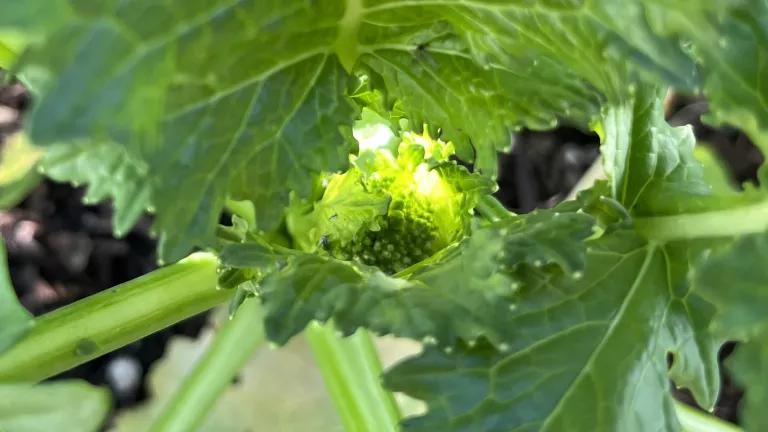Compost Matters—But Food Matters More
With food waste reduction in mind, the Baltimore Food Matters team created a resource that could serve as a reminder to be cognizant of food waste, what we can do to prevent it, and how anyone can compost locally.

This blog was co-authored with Sophia Hosain, former Food Matters Fellow, at the Office of Sustainability, City of Baltimore.
Since 2018, the City of Baltimore, NRDC, and a breadth of local partners have worked together to curb food waste through a project called Food Matters. The first thing that pops into most people’s heads when thinking about food waste is composting, naturally! It’s the easiest to imagine, it’s tangible. But, we know that preventing food waste from happening in the first place, versus composting food waste, actually has more environmental and climate benefits, in addition to being the most effective cost saving measure available to businesses and consumers. Most of the resources used to grow, produce, and store food that isn’t eaten—energy, water, land, fuel for transportation and storage, etc.—are wasted before the uneaten food is tossed. We need to prioritize not wasting food in the first place, and composting only the inedible parts of food, like banana peels and egg shells. So, how do you prevent food from going to waste? One key way is by creating a greater awareness of food waste and its impacts, which can lead to changing behaviors of both consumers and businesses.
With food waste reduction in mind, the Baltimore Food Matters team created a resource that could serve as a reminder to Baltimoreans of why they should be cognizant of food waste, what they can do to prevent it, and how they can compost locally. Not only does this pamphlet serve as a great primer for understanding Baltimore’s waste infrastructure, it also brings to light the more obscure social and economic issues that tie directly into waste reduction and our food system.

Baltimore Food Matters Pamphlet | Designed by Yifan Luo, @yifanluoart
The pamphlet dives into the many communal benefits of composting, such as supporting local economies, providing jobs for youth and improving soil health. It highlights that an estimated 75% of residential waste in Baltimore is either compostable or recyclable and roughly one quarter of all residential waste is food (based on a 2019 waste sort conducted in Baltimore City). In a 2020 survey conducted by NRDC, more than a third of residents (37%) stated they do not compost because they do not know how, and 31% stated there is not enough space at home for composting. This data suggests an opportunity to connect more residents with resources like local community gardens and urban farms where they can compost their food scraps locally—which not only keeps climate pollution-generating organic material out of landfills, but also creates a nutrient-rich soil amendment to build local soil health. The data also reflects the need for more education and engagement to support the use of community composting infrastructure, as many residents who do not compost are unaware of the possibility of composting or have limited access to food scrap drop-off locations.

Baltimore Food Matters Pamphlet | Designed by Yifan Luo, @yifanluoart
The remainder of the pamphlet identifies various measures people can take in their homes to cut back on creating food waste. In Baltimore, the pamphlets will be distributed at local food distribution hubs as well as at community composting sites. NRDC will be sharing the compost pamphlet with cities across the country as part of a national effort to increase knowledge and awareness about the economic, environmental and social implications of wasted food. We hope food waste leaders in other cities will use these educational materials widely.
For access to the pamphlet and related social media assets, please email foodmatters@nrdc.org. When using these resources, we encourage people to credit the fantastic designer, Yifan Luo, @yifanluoart.




